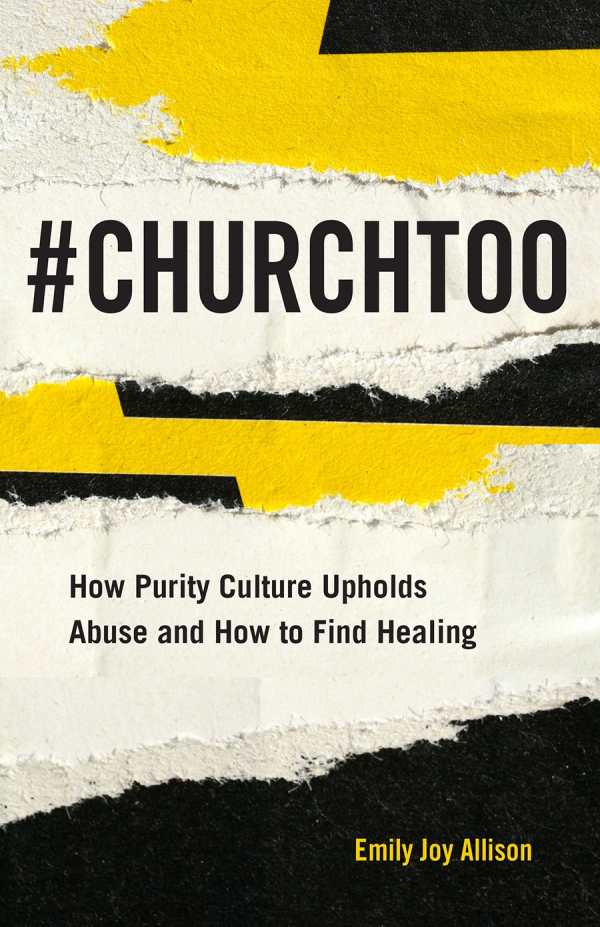#ChurchToo
How Purity Culture Upholds Abuse and How to Find Healing
In November of 2017, the #MeToo phenomenon gave Emily Joy Allison the courage to tell her story of being abused by a church leader ten years before. The movement she started has helped many to speak out about how sexual abuse has been tolerated by evangelical Christian churches, where victims are shamed into silence. In #ChurchToo, she argues that purity culture and abstinence-only sex education are damaging to young people.
A homeschooled pastor’s daughter, Allison was indoctrinated into purity values from an early age, including of total abstinence prior to marriage. Her parents’ bare-bones sex talk never mentioned consent. When, as a teenager, she was preyed on by a youth group leader, she didn’t know how to stand up for herself. Since studying theology, she has come out as gay, been diagnosed as bipolar, and become estranged from her family.
Allison argues that purity culture, like the pro-life lobby, represents not timeless doctrine, but a 1970s-onward political strategy, and is a means of sexual control. She gives numerous, often anonymous, examples of the victim-blaming that goes on in churches, leading people to not report harassment and to stay in abusive relationships. Scrutiny of Christian colleges’ codes of conduct reveals a conflation of consensual sex and assault. Higher rates of STIs and unplanned pregnancies among Christian youth imply that abstinence-only teaching does not work. And LGBTQ+ issues go hand in hand, she contends: “Nonaffirming theology is homophobia.”
The book does not engage in biblical exegesis per se, instead directing readers to the FAQs and resources in the appendix. It assumes familiarity with evangelical culture and espouses a secular worldview, and is geared towards those who have already started to question purity culture.
#ChurchToo opens up a vital conversation about how conservative Christian theology has left “a whole generation” suffering from sexual shame and religious trauma.
Reviewed by
Rebecca Foster
Disclosure: This article is not an endorsement, but a review. The publisher of this book provided free copies of the book to have their book reviewed by a professional reviewer. No fee was paid by the publisher for this review. Foreword Reviews only recommends books that we love. Foreword Magazine, Inc. is disclosing this in accordance with the Federal Trade Commission’s 16 CFR, Part 255.

